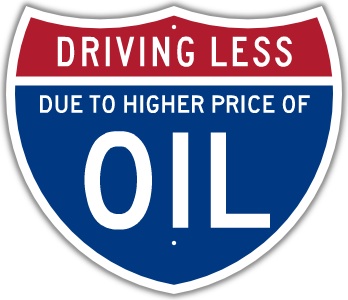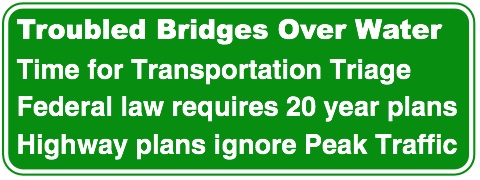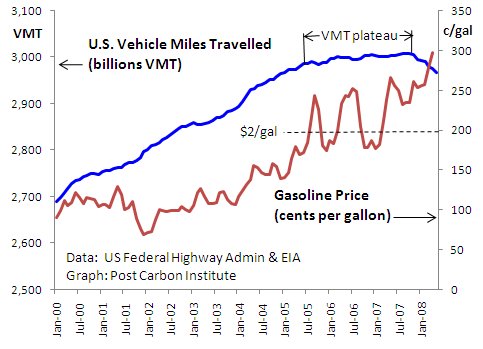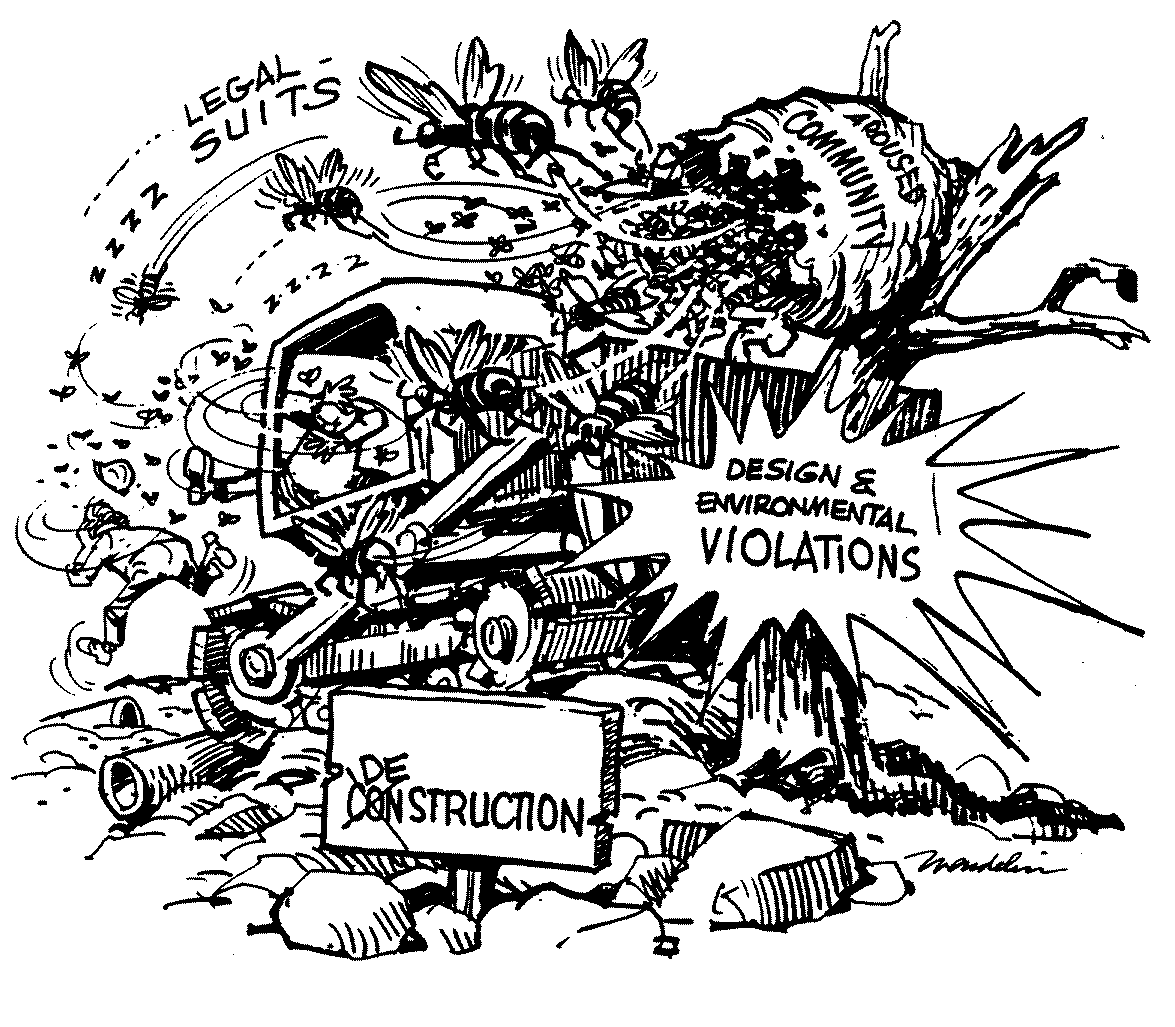Peaked Traffic and Transportation Triage
a legal strategy to cancel trillion dollar highway plans
and prepare for post peak travel
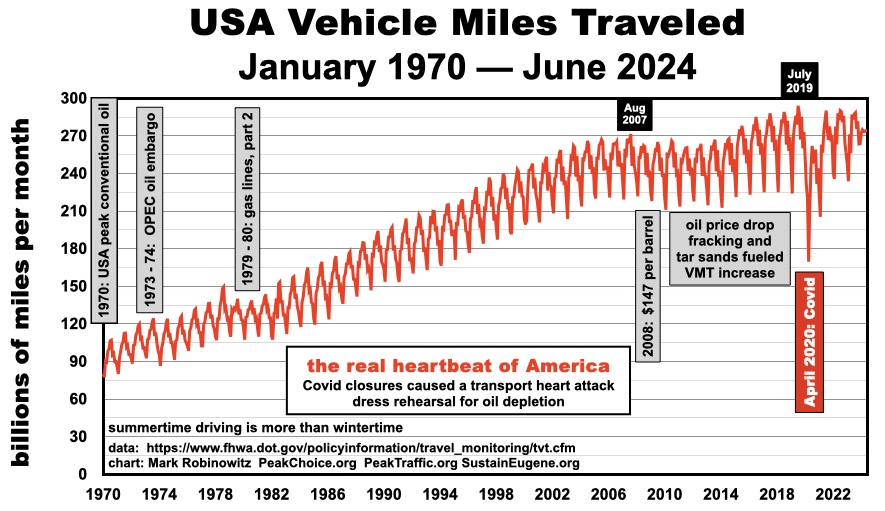
| Trillion Dollar Highway Plans = Multiple Bypass Surgery a state by state list |
|
| High Priority Corridors specified by Congress in 1991, 1995, 1998, 2005, 2012 |
|
| NAFTA Superhighways | |
| Corridors of the Future | |
| J. Edgar Hoover Parkway: transportation surveillance, mileage taxes, RFID & video tolling |
|
| Paving Appalachia:
Corridor A to X in AL, GA, MD, MS, NC, NY, OH, PA, SC, TN, VA, WV |
|
| Alabama | Nebraska |
| Alaska | Nevada |
| Arizona | New Hampshire |
| Arkansas | New Jersey |
| California | New Mexico |
| Colorado | New York |
| Connecticut | North Carolina |
| Delaware | North Dakota |
| Florida | Ohio |
| Georgia | Oklahoma |
| Hawai'i | Oregon |
| Idaho | Pennsylvania |
| Illinois | Rhode Island |
| Indiana | South Carolina |
| Iowa | South Dakota |
| Kansas | Tennessee |
| Kentucky | Texas |
| Louisiana | Utah |
| Maine | Vermont |
| Maryland | Virginia |
| Massachusetts | Washington |
| Michigan | Washington, D.C. |
| Minnesota | West Virginia |
| Mississippi | Wisconsin |
| Missouri | Wyoming |
| Montana | |
Whether you focus on Peaked Energy, Climate Chaos or what is euphemistically called the "Great Recession," each of these aspects of the permanent energy crisis mandate an end to highway expansion. We cannot afford to build more roads when we cannot maintain what we already have. The transition from cheap, abundant oil to expensive, hard to get oil has reduced the amount that people drive and is damaging the economic system that requires endless growth to function. Peak Energy has reduced the physical ability to grow traffic levels, regardless of economic circumstances. Burning fossil fuels pollutes the thin film of the atmosphere, with health consequences and environmental impacts, including global warming. Ultimately, ecology, energy and money are interconnected and inseparable, and each require a holistic integration with the others to address any of them.
Fracking for oil (and natural gas) boosted VMTs above the 2007 peak on a national level, some jurisdictions with good transit did not have a second peak due to fracking.
Energy depletion is not merely about personal transportation. Driving less will be uncomfortable, but eating less would be far more difficult. Most food eaten in the USA crosses time zones, some travels across international borders. As fossil fuels decline we need to grow food where it is eaten. Relocalizing food production, growing food in the cities, community gardens, suburban "food not lawn" efforts, and protection of farmland from asphalt are all needed to reduce agricultural dependence upon oil.
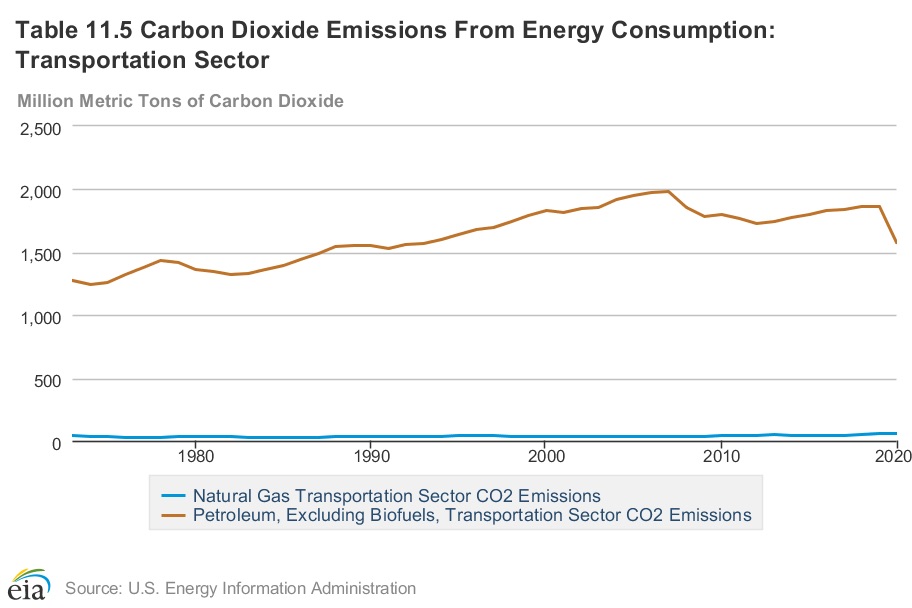
A Route to a New Legal Precedent:
include Peak VMT and Peak Energy in Transportation Plans
George H.W. Bush's highway law - the 1991 Intermodal Surface Transportation Efficiency Act (ISTEA) - requires Federal aid highway plans to use estimates of traffic conditions two decades in the future, not current traffic congestion. It's anyone's guess what energy (and therefore, traffic) levels will be in the 2030s, but under any physically possible scenario the flow rates of petroleum and other fuels will be considerably less than they are today, since conventional fossil fuels have peaked globally. There will still be oil extraction in the 2030s but at levels less than current rates, and future fuels will be the dirtier, more expensive, difficult to extract "bottom of the barrel" supplies such as deep-water drilling, tar sands and fracking. Hyper efficient cars, public transit, car sharing, relocalizing production of food and other goods could mitigate these impacts but not prevent them. Therefore, transportation planning needs to focus on maintaining the enormous road networks already built, not expanding them further for travel demand that will not materialize on the energy downslope. The category of investment euphemistically called "modernization" should be dedicated toward quality train service, not super wide superhighways.
 The National Environmental Policy Act (NEPA) mandates that a "Supplemental" EIS must be prepared if there are "new circumstances" not anticipated when the scoping process was conducted. Surely reaching the peak of petroleum production worldwide is an important circumstance for a transportation project allegedly designed for travel long past the peak of petroleum.
The National Environmental Policy Act (NEPA) mandates that a "Supplemental" EIS must be prepared if there are "new circumstances" not anticipated when the scoping process was conducted. Surely reaching the peak of petroleum production worldwide is an important circumstance for a transportation project allegedly designed for travel long past the peak of petroleum.
If FHWA included Peak Oil into environmental analyses for highway projects, this could create a seismic shift in transportation planning across the United States, allowing for honest public discussion about energy and transportation policies. There are several ways this shift could happen: a successful Federal lawsuit forces FHWA to include Peak Oil, the start of gasoline rationing makes transportation planners consider alternatives, or a change in national policies (probably the least likely in the near future).
Council on Environmental Quality regulations implementing NEPA
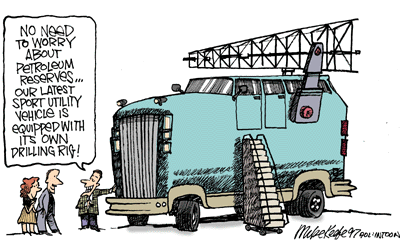 40 CFR 1502.9: Draft, final and supplemental statements.
40 CFR 1502.9: Draft, final and supplemental statements.
(c) Agencies:
(1) Shall prepare supplements to either draft or final environmental impact statements if:
(i) The agency makes substantial changes in the proposed action that are relevant to environmental concerns; or
(ii) There are significant new circumstances or information relevant to environmental concerns and bearing on the proposed action or its impacts.
Federal Highway Administration regulations about NEPA
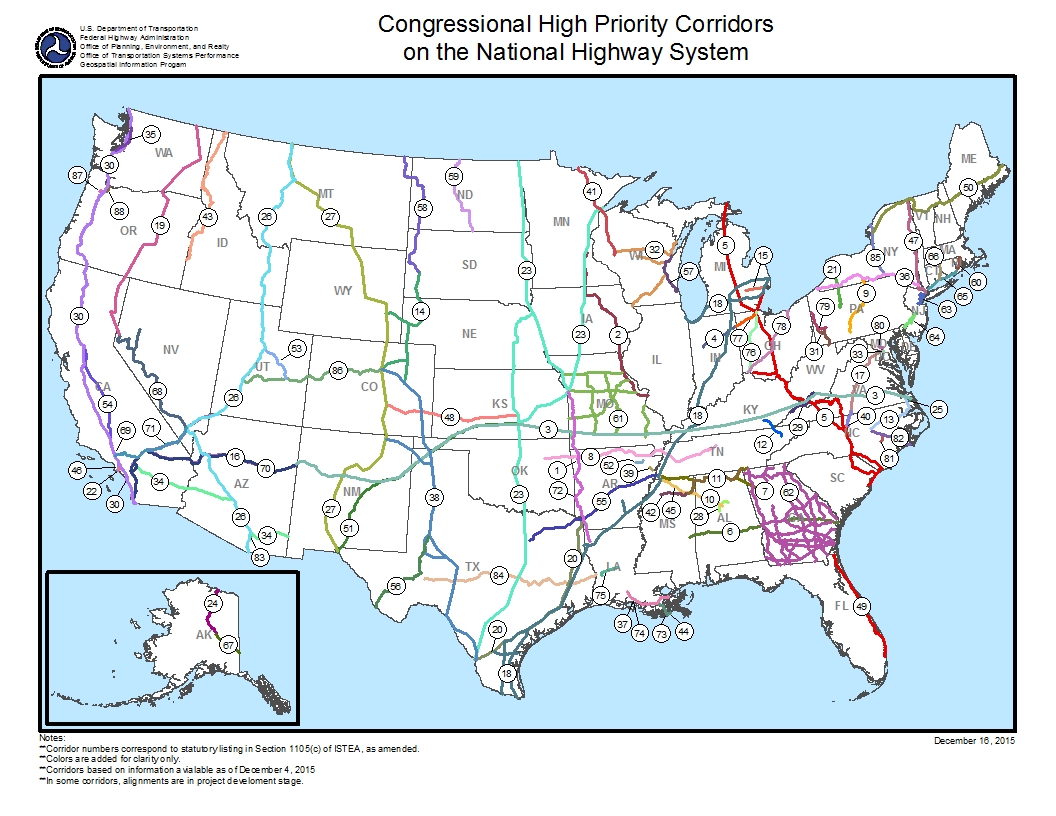 23 CFR 771.130 Supplemental environmental impact statements.
23 CFR 771.130 Supplemental environmental impact statements.
(a) A draft EIS, final EIS, or supplemental EIS may be supplemented at any time. An EIS shall be supplemented whenever the Administration determines that:
(1) Changes to the proposed action would result in significant environmental impacts that were not evaluated in the EIS; or
(2) New information or circumstances relevant to environmental concerns and bearings on the proposed action or its impacts would result in significant environmental impacts not evaluated in the EIS.
Peak(ed) Oil and Peak(ed) Vehicle Miles Traveled are "new circumstances" that are relevant for proposed transportation projects.
"These forty million [poor] people are invisible because America is so affluent, so rich; because our expressways carry us away from the ghetto, we don't see the poor."
-- Martin Luther King, "Remaining Awake Through a Great Revolution," March 31, 1968 (five days before his assassination)"It's really hard to come to terms with the number of corporations, government agencies, consultancies, civil service departments and politicians who seem incapable of comprehending a trend break or trend reversal. Collectively they would have been incapable of working out that the wheel may change transport."
-- Euan Mearns, June 11, 2008
http://europe.theoildrum.com/node/4130#comment-359871





